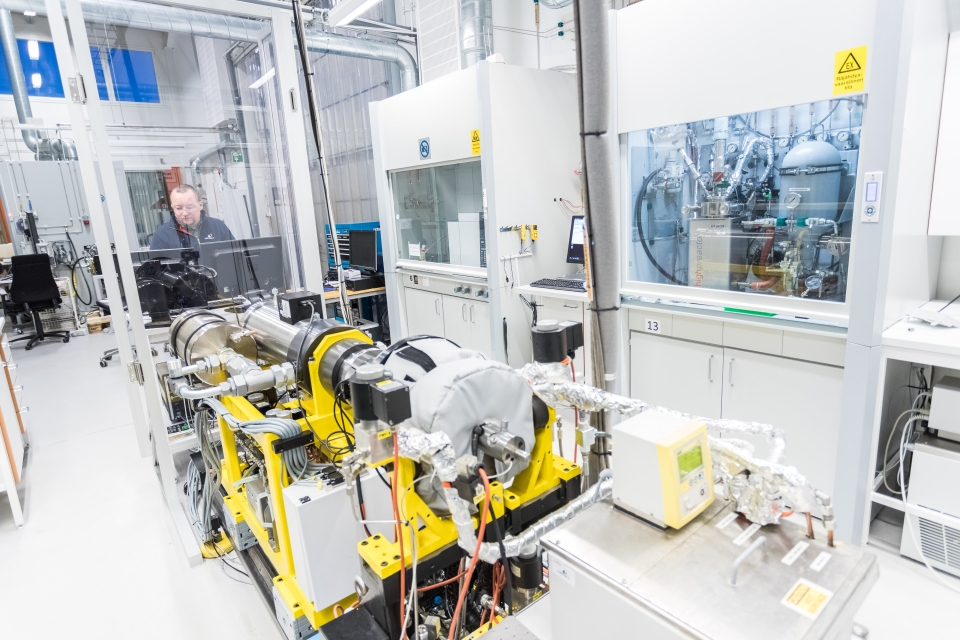A consortium of shipping stakeholders wants to develop demonstrators for two-stroke and four-stroke marine engines running on ammonia fuel. The Ammonia 2-4 project aims to advance viable concepts for ammonia fuel.
The project is coordinated by technology group Wärtsilä, with participation from naval architects C-Job, classification society DNV, ship owner MSC and the National Research Council (CNR) of Italy. It has secured funding of EUR 10 million from the European Union through the Horizon Europe research funding initiative.
‘Ammonia is one of main candidates in shipping’s search for future fuels,’ explains Sebastiaan Bleuanus, General Manager, Research Coordination & Funding, Wärtsilä Marine Power. ‘Wärtsilä has already proven an engine concept running on blends of up to seventy per cent ammonia so far and will have a concept running on pure ammonia by 2023. This project is a fantastic opportunity to accelerate development of the solutions shipping will need.’
Also read: Wärtsilä to deliver first methanol fuel supply system for Van Oord’s Boreas
Lab-based demonstrator and vessel retrofit
The outcomes of the project will include a lab-based demonstrator for the four-stroke ammonia engine, and a lab-based test engine followed by a vessel retrofit for the two-stroke version by 2025. As well as advancing the engine concepts, the Ammonia 2-4 project will further develop concepts around fuel handling and safety as well as contributing inputs towards a regulatory framework for ammonia.
Niels de Vries, Lead Naval Architect at C-Job Naval Architects: ‘Thanks to the project set-up, we’ll be able to show the application of ammonia as a marine fuel for both ships using fuel direct configurations and ships using fuel electric configurations.’
Also read: Wärtsilä and Eidesvik to convert offshore vessel to run on ammonia
‘Ammonia as fuel has great potential, especially for deep-sea shipping,’ adds Hans Anton Tvete, Programme Director Maritime, Group Research and Development, DNV. ‘Collaborative efforts to put safe, reliable and environmentally friendly engine technology in place are essential for ammonia to enter the fuel mix. We are therefore very pleased to team up with such esteemed partners in this project and look forward to supporting it with our expertise in assessing health, safety and environmental concerns, as well as helping to close regulatory gaps surrounding its use as a marine fuel.’
Picture: The Ammonia 2-4 project represents an important step towards commercial engine concepts after early combustion tests with ammonia fuel blends (by Wärtsilä Corporation).
Also read: DNV to lead ammonia bunkering safety study in Singapore








